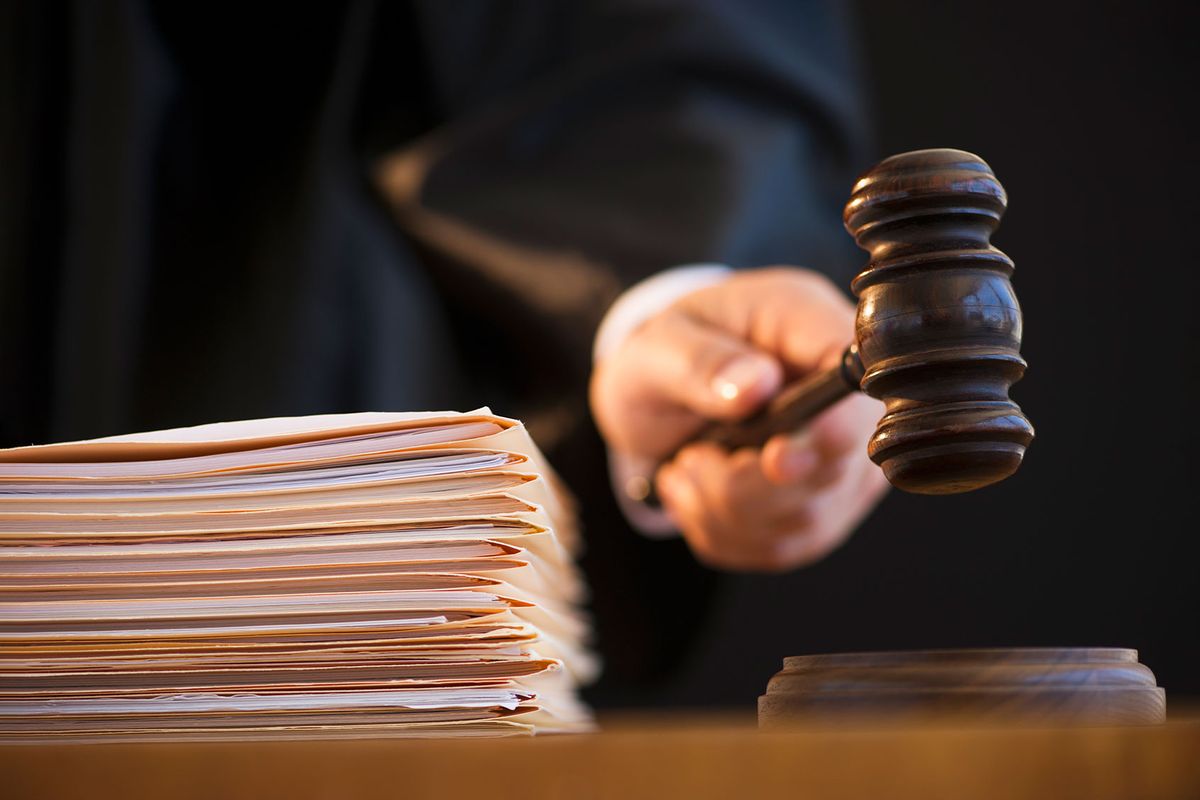“Lack of experience”: Experts say Trump-appointed Judge Cannon made multiple errors in earlier trial

Judge Aileen Cannon, the Trump-appointed U.S. District Judge in the Southern District of Florida presiding over the former president’s classified documents case, made two critical errors in a June trial, Reuters reports, citing legal experts and a court transcript, with one of her missteps violating a fundamental constitutional right of the defendant, which could have invalidated the proceedings.
Cannon closed the courtroom during jury selection for the June trial of an Alabama man, whom federal prosecutors accused of running a website with images of child sex abuse, to the defendant’s family and the general public, according to a trial transcript obtained by the outlet. Though Cannon cited space restrictions in her small courtroom in the Fort Pierce federal courthouse, the Sixth Amendment guarantees a defendant’s right to a public trial.
The 42-year-old judge also failed to swear in the prospective jury pool, an error that forced her to restart jury selection. Some of the former federal prosecutors Reuters interviewed noted that judges’ courtroom deputies would sometimes remind them of procedural steps such as swearing in prospective jurors as they could be more focused on other parts of running a trial.
The renewed jury selection process never began, however, because the trial ended abruptly with defendant William Spearman pleading guilty as part of a “conditional” deal with prosecutors that retains the defendant’s right to appeal certain rulings by the trial judge.
Cannon’s courtroom closure presents “a fundamental constitutional error,” Stephen Smith, a professor at the Santa Clara School of Law in California, told Reuters. “She ignored the public trial right entirely. It’s as though she didn’t know it existed.”
That day, Scott Berry, the federal public defender representing Spearman, had even argued in the courtroom that Cannon’s refusal to allow his client’s family to be present violated his Sixth Amendment right, the transcript showed.
“All right, thank you. Your objection is overruled,” Cannon responded, according to the transcript.
A federal prosecutor in the case, Greg Schiller, also later urged Cannon to allow Spearman’s mother into the courtroom, referencing a 2010 U.S. Supreme Court precedent that required judges to weigh less restrictive alternatives prior to closing a courtroom to the public, including during jury selection.
When Berry later alerted Cannon to two vacant chairs in the room, Cannon dismissed his request again, saying the chairs were reserved for law enforcement.
“Mr. Spearman’s mother is free to join us once the jury selection process has concluded and/or there is truly enough room in the courtroom,” the transcript shows Cannon saying.
She did offer later to let Spearman’s family into the courtroom after she realized she had also erred in neglecting to swear in the jury pool, explaining that there would be room after jurors, whom both sides had agreed to dismiss, had left.
Her decision sparks questions about what her approach will be regarding the immense public interest and scrutiny at Trump’s trial, which is slated to begin on May 20, 2024.
Cannon’s trial errors also demonstrate her inexperience as a judge, former federal judges — both Democratic and Republican appointees — told Reuters. Trump’s trial will be Cannon’s first time overseeing a case involving classified materials and navigating the rules surrounding their handling.
“A lack of experience can be really hard in a big case, especially when there’s all this media attention and everything you do is being watched and commented on and second-guessed,” Jeremy Fogel, a former federal judge who leads California’s Berkeley Judicial Institute, said, adding that Cannon’s mistakes were “fairly significant.”
“It looms larger because of who the judge is,” he added.
Want a daily wrap-up of all the news and commentary Salon has to offer? Subscribe to our morning newsletter, Crash Course.
The former Chief U.S. District Judge of the Northern District of Iowa, Mark Bennett, argued that Cannon “should have figured ahead of time a way to accommodate a small number of family members in a very small courtroom, in my opinion. It’s just the right thing to do, and not run the risk of there being reversible error.”
Cannon did not respond to the outlet’s request for comment. A Justice Department spokesperson and Berry declined Reuters’ request for comment.
So far as a judge, the former federal prosecutor has presided over four criminal trials that have resulted in jury verdicts. She also previously worked on four criminal trials that concluded with jury verdicts in her role as a prosecutor from 2013-2020, a questionnaire she completed before the Senate confirmed her judgeship indicated.
Cannon became the subject of a rebuke from the 11th U.S. Circuit Court of Appeals in Atlanta when it reversed her 2022 order appointing a third party to review materials the FBI had seized from Trump’s Mar-a-Lago resort club in the classified documents probe.
“We cannot write a rule that allows any subject of a search warrant to block government investigations after the execution of the warrant. Nor can we write a rule that allows only former presidents to do so,” the 11th Circuit panel of three Republican-appointed judges wrote in their ruling, ordering the dismissal of a lawsuit Trump had filed seeking to shield documents from federal investigators.
Former Assistant U.S. Attorney Andrew Weissmann said on X, the platform formerly known as Twitter, that he had, “No words” for Cannon’s errors in the June trial.
“That tiny courtroom in Fort Pierce really should not be the location of this case,” national security attorney Bradley Moss tweeted.
“Lots of people who become judges were never very good at knowing the law,” Andrew Fleischman, a Georgia trial and appellate lawyer, added.
Read more
about Judge Aileen Cannon

